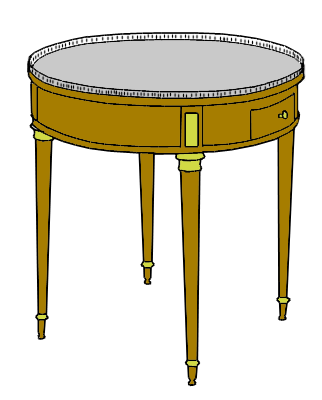A popular post from the archives - the 4 legs on the KM table
 |
| Image from wikimedia commons |
It's very easy to develop an unbalanced perspective on Knowledge Management, especially when we work closely with the topic, but it is something that we should strive to avoid.
I was listening to someone describe their Knowledge management Framework recently. They described their portal, they described the roles that support the portal, they described the processes that support the portal, and they described the governance elements they had developed around the portal.
As I listened, I reflected that they had the elements of KM, but had a one-sided perspective.
Let me explain what I mean.
The 4 legs on the table
There are 4 enablers that support Knowledge Management, like 4 legs that support a table. These are
- The technology elements, such as portals, collaboration tools, search engines, lesson management systems etc.
- The elements of roles and accountabilities, such as CoP leaders, Knowledge Managers, and Knowledge Owners
- The process elements, such as After action review, Lessons Capture, Knowledge Asset creation etc
- The governance elements, such as KM policy, metrics and incentives, support etc.
All of these elements are mutually supportive.
Yes, the roles support the portal, but to an equal extent the portal supports the roles. Yes, the processes support the portal, but to an equal extent the portal supports the processes, as do the roles, as does the governance.
Yes, the roles support the portal, but to an equal extent the portal supports the roles. Yes, the processes support the portal, but to an equal extent the portal supports the processes, as do the roles, as does the governance.
Like the 4 legs on a table, the 4 elements of KM are all equally important. No single element is dominant - they all support KM, and they support Knowledge Management in supporting the business.
If you find one of these enablers is becoming dominant in your thinking for any reason, then your table is at risk of becoming wobbly and unstable. If any of these elements is missing completely, your table will fall.
Balance your perspective.
If you find one of these enablers is becoming dominant in your thinking for any reason, then your table is at risk of becoming wobbly and unstable. If any of these elements is missing completely, your table will fall.




No comments:
Post a Comment